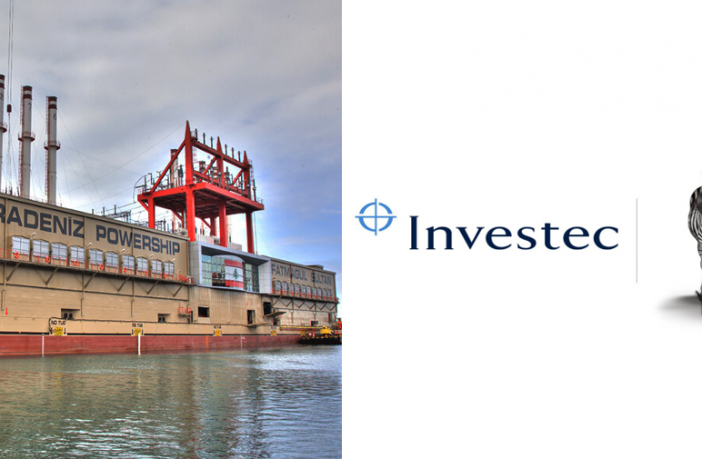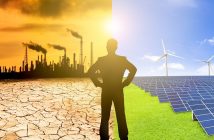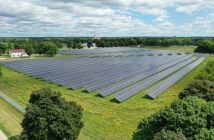Opinion
- The Development Bank of South Africa (DBSA), Absa and Investec have all expressed financial interest in a deal with the Turkish Karpowership company — despite a number of objections to the March 2021 decision to select it as the preferred bidder to provide 1,220MW of electricity in the Risk Mitigation Independent Power Producer Procurement Programme (RMI4P).
In what has been declared a rare win for national environmental governance, the Department of Fisheries, Forestry and the Environment refused environmental authorisations for the project on 24 June. The DBSA and Absa said the deal would be reviewed on commercial merit and scrutinised by internal due diligence, but have remained silent since the department’s decision.
Its refusal was prompted by several critiques from experts and organisations, including the Richards Bay Clean Air Association, BirdLife South Africa, SANParks, Oceans Not Oil, the South Durban Community Environmental Alliance, the Masifundise Development Trust, The Green Connection, the Centre for Environmental Rights (CER) and groundWork.
Controversy around the project includes suspicious procurement and alleged attempts by environmental impact practitioners to mislead the department in an effort to sidestep environmental legislative obligations, as well as questionable exemptions on local content production. The powerships themselves are predicted to have immensely detrimental environmental and social impacts, including unaffordable climate change effects.
Related news: A dark carbon cloud hangs over Investec Bank
The influential role of finance in providing conditional support to the gas-to-power ships bid, estimated to cost South Africans R225-billion, is alarming and demands further scrutiny and accountability from the financial institutions who have indicated initial financial support and guarantees. Should the public be expected to carry the increasing “pass-through” costs? Can South Africans rely on the internal due diligence processes of public financial institutions and commercial banks to objectively assess the deal in the long term?
Internationally, Karpowership has been accused of taking advantage of crisis situations, and here in South Africa, it is bidding for a 20-year contract where the average docking time is five years. Eskom, already in debt, has “balked” at carrying the cost considering its already stretched finances. So-called emergency load shedding has previously enabled grossly inflated coal contracts. The financial viability of emergency interventions must be challenged.
The cost of renewable energy and storage is steadily decreasing. Volatile price fluctuations of imported liquified natural gas and US dollar exchange rates will be added into the Karpowership tariff alongside an unfixed carbon tax. Gas is increasingly seen as a trillion-dollar stranded asset, with international divestment from the gas sector taking place. A recent report from the International Energy Agency has categorically concluded that no new fossil fuel investment can take place if we aim to stay within the Intergovernmental Panel on Climate Change target of 1.5°C warming.
Claims that the emergency power procurement process had been rigged from the start to favour gas and inhibit renewables begin to make sense against the backdrop of the government’s aggressive promotion of a national gas programme. There are fears that South Africa’s skewed energy history with fossil capitalism could position gas as being the next coal (including as an expanded site of patronage). Despite trends of international divestment from gas, South African plans include not only powerships, but offshore exploration, land-based fracking and a national gas pipeline. All of this will take decades that our economy and our people can ill afford, despite government claims that gas is a “bridging” source of energy.
Investment in gas will impede the development of more renewable and sustainable energy options. Continued investment in gas means that the country is not aligned to the job-rich and clean energy future that we aim for in a Just Transition. Local renewable energy producers have been “shovel ready” with more affordable energy for five years, but say they were kept from going ahead by the Department of Mineral Resources and Energy.
Public finance institutions have a duty
With time running out before the financial close of the RMI4P deal at the end of July, we expect to be hearing from the financial backers of the deal. Public development finance institutions such as the DBSA have a bigger role to play than just avoiding harmful investments. In a country like South Africa where poverty, inequality and unemployment are rising every day, our development finance institutions have a duty to ensure sustainable financing which advances the UN’s Sustainable Development Goals in a meaningful way.
Public finance offers a rare opportunity to ensure that poverty, climate risk and inequality are addressed while ensuring the protection of our environment for generations to come. Any failure to divest from fossil fuels could leave public finance institutions exposed to significant material risk.
The CER recently concluded that development finance institutions “should resist political influence over their finance and investment policies, particularly in relation to transitioning to a low-carbon economy, and aim to achieve development in a sustainable manner”. This approach is supported by our development finance institutions having the constitutional imperative to ensure and advance the health and wellbeing of people and the environment, under section 24 of the Constitution, when read with applicable enabling legislation.
Institutions need to show real leadership in setting sustainability standards and norms, sending signals to the private sector for added support. Current stimulus and recovery packages in response to Covid-19 that include fossil fuels actually lessen our chances for a just and sustainable recovery and diminish future potential of an alternative energy sector. All of these bind citizens to the harmful effects of powerships today and contribute to a future climate crisis.
Putting citizens at the centre
People on the ground have voiced their opposition to the powerships all along the coast. Environmental impact assessments have processes within them to enable all interested and affected people to have a say and to have their issues responded to. The decision of the Department of Fisheries, Forestry and the Environment to not grant Karpower approval, specifically raising lack of public participation as one of its responses, reiterates the significance of the rights of people to have a say in decisions that affect them. Meetings outside the environmental impact assessment process do not compensate for this failure.
Our development finance institutions need to be accountable to the public which it is mandated to serve through development and other initiatives. They should not blindly pursue projects which are high-risk and increasingly unviable. As a citizenry, we need to challenge them on their fossil fuel investments.
Similarly, we need to challenge private banks on where they invest our money. Investing in fossil fuels is foolish and the banking world needs to stand up and show commitment to the future. If it fails to do so, history will judge it as being found wanting.
With just under one month left, Karpowership plans to appeal against the department’s decision but is unlikely to meet all necessary criteria to meet the financial close at the end of July 2021. The department has shown that it is serious about the importance of meaningful public participation — in this case, at least. Will this commitment extend to other institutions in their assessment of public and commercial financing of the Karpowership deal and its use of public funds?
A campaign by 350Africa.org demands that banks publicly and fiscally abandon this deal, take a stronger stand against fossil fuels and open the door for more sustainable, climate-resilient options.
Authors: Alia Kajee is the 350.org public finance campaigner. Janet Solomon is a filmmaker and creator of the documentary Becoming Visible. Richard Halsey is a researcher at Project 90 by 2030. Liz McDaid is the founding member of The Green Connection. Leanne Govindsamy manages the corporate accountability and transparency programme at the Centre for Environmental Rights.
Disclaimer: The articles expressed in this publication are those of the authors. They do not purport to reflect the opinions or views of Green Building Africa, our staff or our advertisers. The designations employed in this publication and the presentation of material therein do not imply the expression of any opinion whatsoever on the part Green Building Africa concerning the legal status of any country, area or territory or of its authorities.











